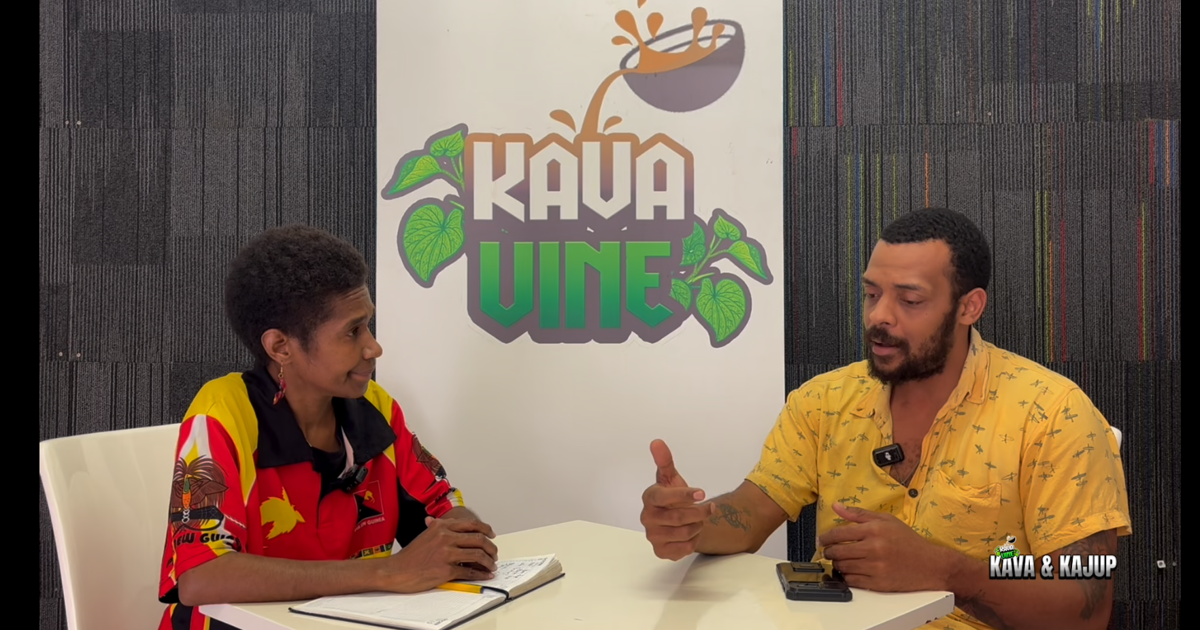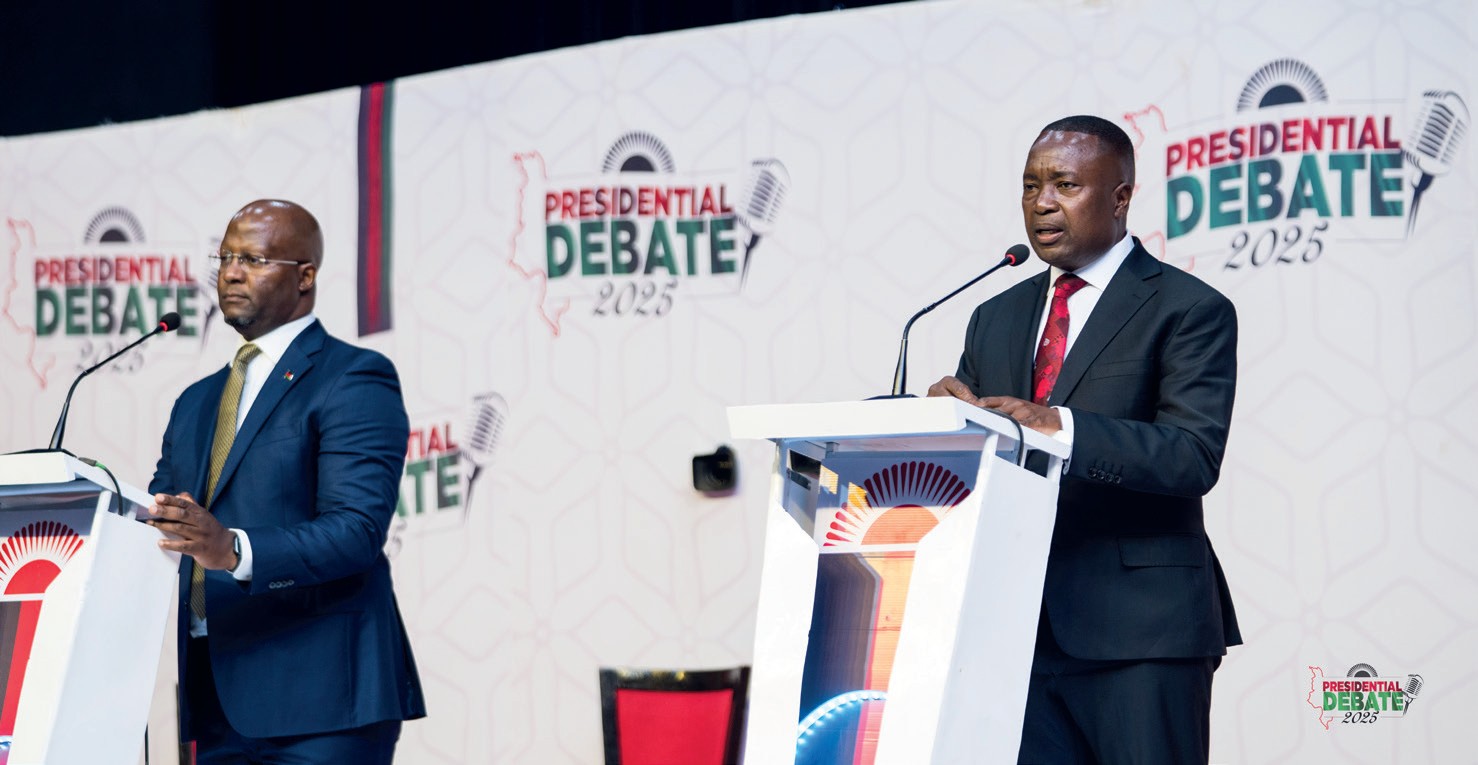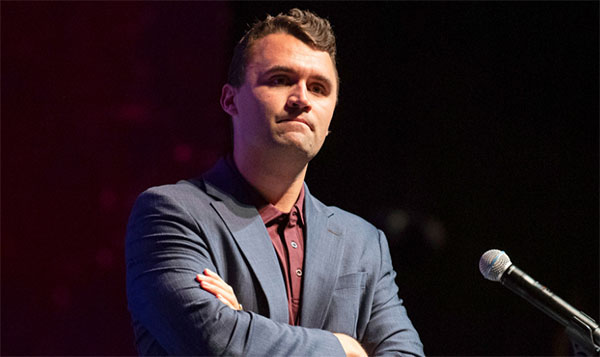
Host: Julia CharleyGuest: Mavuku Tokona, Newsroom Coordinator, Daily Post
Julia: Good afternoon, and welcome to Kava mo Kajap. Today we have with us a very interesting guest, Mr. Mavuku Tokona, Coordinator of the Vanuatu Daily Post newsroom. Recently, Daily Post has taken on some new and exciting projects, and just this week two of your staff travelled to Santo. Tell us, what is this project about?
Mavuku: Good afternoon, Julia, and thank you for having me. Yes, that’s right. Earlier this year we began planning a documentary project focused on kava farmers in rural Santo. The idea came from looking at all the equipment we had for programs like Sports Analysis and Taem Blo Storian and thinking—why not take these shows on the road?
I also remember a comment from the Director General of Agriculture, Timothy Tumukon, who said that if farmers wanted serious government or financial support, they had to prove they were serious. That struck me, because I know farmers in the outer islands are serious. They pay school fees, repay loans, and support their families through kava. So I thought: why not send a team to Santo, document their struggles, their success stories, and their needs, and then present those stories both to the government and to the public?
Julia: So this is really about showing the reality of kava farmers’ lives. How will your team be doing that?
Mavuku: Exactly. Two of our staff, reporter Nicholas Mwai and producer John Niavia, left on the 16th of September. They’ll be in South Santo for about ten days. They’ll travel out to farms, cross rivers, climb hills—basically follow farmers in their daily routines. With drones and GoPros, they’ll capture everything: the hardships, but also the resilience and achievements.
This is all made possible by the National Bank of Vanuatu (NBV), which loved the idea and decided to fund the project. We’ll also be speaking with farmers who are part of NBV’s microfinance program. Many of them have taken small loans, started kava farms or businesses, and used that income to support their families. These are the kinds of success stories we want to highlight.
Julia: That sounds powerful. Beyond Santo, are there other projects your newsroom is planning?
Mavuku: Yes, definitely. This has been a very good year for us. We also applied to the ABC for support, and we received funding for another trip—this time to the Banks Islands.
In October, our producer Lynette Melenamu and reporter Ezra Toara will travel north. Their focus will be on humanitarian issues—things like water scarcity, sanitation, education, and shelter. These are basic human needs that people in Port Vila often take for granted, but in the islands, access is limited.
Julia: So it’s not just about politics and scandals, but about real-life struggles?
Mavuku: Exactly. People love talking politics at the nakamal, but we also need to tell stories that go deeper. We want to uncover the hidden truths—women whose roles have changed because of climate change, communities that have petitioned MPs for years without results, families that dream of a better life but lack the resources. These are not the usual annual stories about festivals or events. They are the untold stories that deserve national attention.
Julia: What challenges do you face in putting these projects together?
Mavuku: There are quite a few. First, managing cash in remote areas. In Port Vila we can just tap a card, but in South Santo or Banks, there are no ATMs or EFTPOS machines in the villages. Our staff have to carry large sums of money, which is risky. Then there’s the security of equipment—drones, cameras, laptops—all of it is expensive.
It’s also about responsibility. Once we come up with an idea, we brainstorm it, then pass it to our marketing team. If they can find the right sponsor, that idea can grow. That’s how we secured NBV’s support for the Santo project. It’s a whole new chapter for Daily Post, but it does come with challenges.
Julia: You’ve mentioned Santo and Banks. What about the south—TAFEA Province, for example?
Mavuku: That’s certainly on the horizon, but it will depend on funding and research. Every island has good stories, but we’d need to talk to people on the ground, chiefs, and provincial councils to guide us. With partners like NBV, it’s easier, because they already have microfinance farmers across the islands who can help us connect with communities.
Julia: Do you see Daily Post eventually sending staff overseas as well?
Mavuku: Yes, that’s a very real possibility, and in fact it’s already happening. We have international partners, and some of our staff have attended training in Australia and China. But honestly, what excites me more is sending our journalists into the islands here at home.
Sometimes NGOs or CSOs provide water tanks or electrification in remote villages, and we in Vila never hear about it. These places are just a boat ride away, yet their stories go untold. That’s why our priority is local voices—so they can be amplified, not just for foreign donors, but for their own MPs who should be accountable to them.
Julia: That’s inspiring, Mavuku. Thank you so much for joining us on Kava mo Kajap today.
Mavuku: Thank you, Julia. Always a pleasure.



